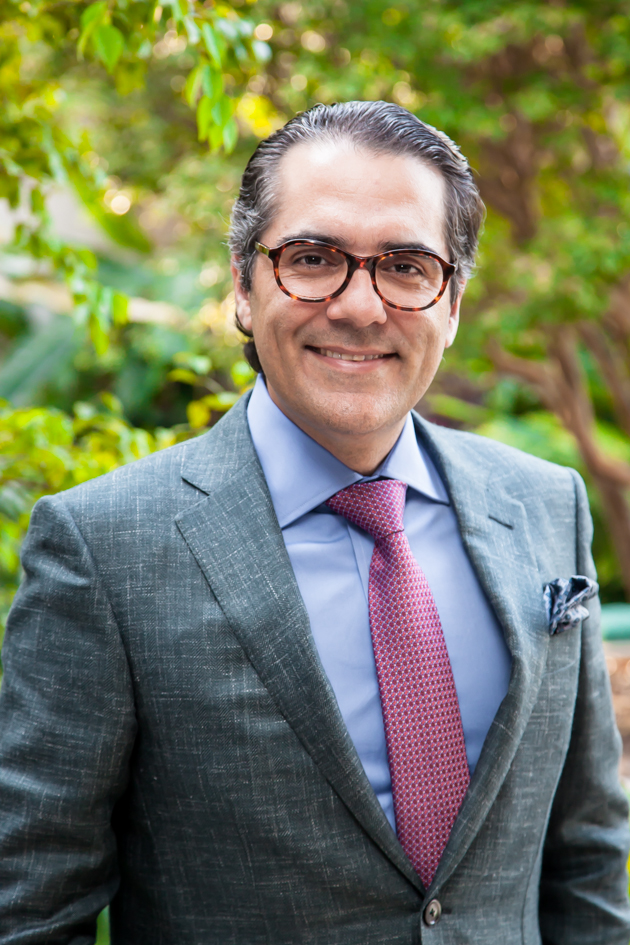Organizations nowadays are adrift. Old business models and organization charts can address neither new market dynamics nor stockholders’ increasingly higher expectations.
People are distressed as they are unable to relate their daily activities and goals to aspirations that are ever more abstract and less exciting. Leaders are neglecting to face organizational transformation challenges.
We live in a collective angst concealed by the delusion of a calendar packed with activities, meetings and reports. We fail to distinguish between the real meaning of life and a life full of hustle.
We wrongly believe our days and weeks by much faster than they did decades ago. We do not realize how superficial our personal relationships are and we are unaware of the amount of rapidly changing information we foolishly try to process every day.
We just give up understanding ourselves because we are too afraid of the mirror. We forgo building long-term relationships as we accept the convenience of a long list of virtual contacts. And even as we un- consciously seek this escape, we silently ask ourselves again and again what our life purpose is. As a leader in your organization, it is your responsibility to engage in this personal quest and to influence your team, managers and peers to do the same.
So, ultimately, what is the meaning of your life? In view of the certainty of death, this question is the cornerstone of metaphysics and religions. We learn about death while still in the first years of our lives, and this question remains a fundamental, if not desirable, contemplation. But many people would rather live their lives in a state of thoughtless frenzy, lacking the courage to ask what their life’s purpose is, always taking advantage of convenient excuses, such as family, work, bills, and leisure distractions.
The four pillars of life’s meaning—family, community, nation and spirituality—are currently being challenged. And this is complicated. These pillars have sustained us for centuries. If they are in turmoil, our life’s meaning is challenged, so we look for answers by satisfying our individual needs and expectations.
Family as a concept is in the process of being redeemed. Different family configurations are the new trend as the old dad-mom-kids model falls apart. Our work demands increasingly more of our individual energy. New technologies change the allocation of time spent in family activities. Credit-based upward mobility leads to homogenized consumer behaviors. Generational conflicts have always existed, but they seem more embittered now due to the speed and amount of information, which favor a desire for instant gratification instead of a journey towards an ideal future.
Community concept, particularly in large and midsize cities, is nowadays totally irrelevant for most people. In the past, relatives would live close by, neighborhood families would know each other for generations, and there were small neighborhood drugstores and grocers, community recreation centers, churches, street festivals, bakeries and little stationary stores. But those are all things of the past. These sweet memories reside with us now in a new environment of commuter towns, high-rises and faceless condo buildings. We just have to read homeowners association bylaws to realize that public and private space boundaries are exhaustively defined.
Nations are vaguely remembered in high profile sports events, but it is not part of personal priorities anymore. It has been buried under general political disappointment and surpassed by the power of huge multinational organizations. These companies, which are ever more omnipresent, self-sufficient and unconstrained by geographical borders, have enormous influence over the masses.
Also, the role of spirituality is being reviewed. I cannot think of anything more passé than hell and, for this very reason, God has lost ground to Google. One can argue we used to be more fearful of God and, therefore, were more loyal to the Church. Communion, confession, prayer and novenas have become lost customs for preparing for the Judgment Day and they don’t t a modern life schedule anymore. Nowadays, our prayers happen pretty much only when we face some serious family problem. At the same time, the Church is going through an ethical crisis. at explains in part the amazing growth of self-help book sales and the success of the prosperity theology in its many shapes.
And so, in the absence of the four traditional pillars of meaning of life, we aspire for goods and services to fulfill our quest for self-satisfaction and our need to belong to a tribe that can differentiate us from the masses. We are back in the hedonist age! The search for the meaning of life has turned into an egocentric journey in which organizations exist as places to partially satisfy these needs but, at any moment, can be replaced by another professional opportunity with a more attractive value proposition. Even time is now viewed under the carpe diem philosophy because the future is uncertain and possibly adverse.
It is important to note that this quest does not translate into isolation. It is rather a constant search for social networks which represent the dynamic area of individual, virtual or face-to-face consensual relationships and associations. These networks serve a common purpose in a group where the components identify and mirror themselves in each other.
What kind of impact does this sociological, psychological and anthropological context have on the organizational environment? The answer is very simple: huge! Organizations had already broken their “job for life” commitment in the 1970s and 80s due to the speed-up of innovation processes. Now, facing an even stronger disruptive scenario, they fight every day to survive and to rediscover the importance of personal relationships and Essential Leadership to their processes of cultural transformation, strategic execution and high-performance team development.
The traditional structures of command-control—and their processes structured around layers of power, their emphasis on operational excellence of processes, their financial incentives for individual performance and their focus on short-term profit optimization—are being challenged by network structures based on shared values where a new “person to person” paradigm is fostered based on individual appreciation, focus on intellectual capital and emphasis on relationships.
Duty ethics has been replaced by pleasure ethics. Several generations worked very hard, in more difficult work environments, so that one day, God willing, they could enjoy life in retirement. More recently, however, social security shortfalls, an enormous increase in life expectation, the individual quest for meaning of life and the power of social networks have all contributed to consolidate pleasure ethics —where each relationship and each activity must fit individual needs and expectations. This phenomenon is not exclusive to the new generations, though it is more natural for them to challenge the status quo. Men and women in their fifties or sixties are also thinking about this very subject as they try to find purpose for their next 30 years of life.
In this new context focused on a larger meaning, both organizations and individuals are aware of the typical challenges of a new Anthropocene geological epoch, which deals with the human impact on the biosphere starting with the First Industrial Revolution in the 18th Century. It is interesting to note that this egocentric quest for meaning of life is intensified exactly at the moment when human impact on the planet is irreversible. It is in this general context that Essential Leaders currently find themselves.


